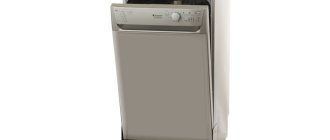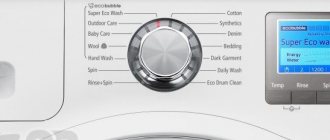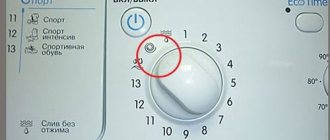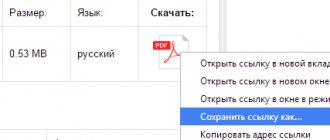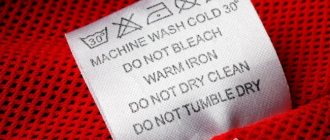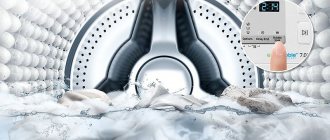There are days when any electrical appliance in the house, including the vacuum cleaner, seems to offer more entertainment than the TV set.
There are days when every electrical appliance in the house, including the vacuum cleaner, seems to be able to offer more entertainment than the TV.
Harriet Van Horne
When talking about technology, it is important to understand the difference in the meaning of the following English words: gadgets, devices, appliances. Gadgets are devices that perform a limited number of functions; as a rule, these are some new items or interesting inventions. For example, headphones (headphones) or a portable battery (a powerbank). Devices are complex technical devices, for example, a tablet PC or a camera. But we use appliances in relation to household appliances intended for cleaning the house, preparing and storing food: a vacuum cleaner (a vacuum cleaner / a hoover), a food processor (a food processor), a toaster (a toaster) and a washing machine (a washing machine). You can find out more information on the topic in our article “Ok, Google, or All about gadgets and devices in English.”
Snow-white, silver and even colored. With chrome handles, buttons and touch panels. They guard our home comfort and coziness - such irreplaceable household electrical appliances. They have long become part of the home interior - comfortable (handy), energy-efficient (energy-efficient), built-in, with many functions (multifunctional). They hum (to hum), rattle (to rattle) or work silently (to operate / to work silently) to save our time. To function properly, they need wires/cords and a socket/an outlet.
Electrical appliances such as a refrigerator / a refrigerator, a washing machine or a dishwasher are called “white goods”. Initially, they were covered with a layer of white enamel, hence the name. Nowadays you can find other color solutions in household appliances stores, but the name remains the same.
Categories of household appliances
Our big and small friends, household electrical appliances, are ready to make our lives easier in every little detail. In the bedroom and living room we are helped by an air conditioner, a fan, an evaporative cooler / a humidifier, an air purifier, an electric heater, a vacuum cleaner, an iron ), a steam cleaner, a sewing machine.
In the bathroom, we simply cannot do without a washing machine, a hairdryer, a water heater and an electric towel warmer.
And, perhaps, the largest number of household helpers are in our kitchens. This is a range hood / an exhaust hood / a cooker hood, a multicooker, an oven, a stovetop, a stove / a cooker, a bread maker bread maker), a food waste disposer, a waffle iron / a waffle maker.
We invite you to watch a video with the names of kitchen appliances, from which you will learn that, in addition to white goods, there is another type of household appliance. Brown goods are appliances that get their name from the fact that they used to be placed in a wooden frame (for example, a television or radio) to blend harmoniously into the interior of the room. As a rule, these are small household appliances.
List of useful vocabulary from the video:
- a dryer, a tumble dryer (BrE), a tumble drier (AmE) – dryer;
- an oven - oven;
- a blender – blender;
- a juicer - juicer;
- a coffee maker - coffee maker;
- an espresso maker – a machine for making espresso;
- an electronic kitchen scale - electronic kitchen scales;
- an electric pressure cooker - pressure cooker;
- a hotplate – a small electric stove;
- an ice cream maker - ice cream maker;
- a hand mixer - hand mixer;
- a stand mixer – stationary mixer;
- a microwave oven – microwave oven;
- a kettle - teapot;
- a deep fryer - deep fryer;
- a food steamer - double boiler;
- a popcorn maker – a machine for making popcorn.
Operation of household appliances
Before you start using any household appliance, you need to know how it turns on and what operating modes it has. The following table of words will be very useful for this.
| Word | Translation |
| to connect | turn on, connect |
| to disconnect | disconnect, disconnect |
| to insert | place, insert |
| to increase the speed | increase a speed |
| to put a lid on smth | cover with a lid |
| to be plugged in | be plugged in |
| to press the start button | press the "Start" button ("Start" button) |
| to be turned on/off | be on/off |
| to take out | take out |
| to turn the speed down | reduce speed |
| to turn up/down | increase decrease |
| to remove | remove, delete |
| to stop working/operating completely | stop the operation (of the device) |
| to unplug | unplug the plug from the socket |
Let's see how these verbs are used in context:
How is this dishwasher connected to the water line? – How is this dishwasher connected to the water supply?
Ben suddenly remembered that he had forgotten to unplug the electric kettle. – Suddenly Ben remembered that he forgot to unplug the electric kettle .
It's extremely important to slowly increase the speed of the blender when you blend the ingredients. – It is extremely important to slowly increase the speed of the blender as you combine all the ingredients.
I forgot to put a lid on the blender while making a milkshake. Now my kitchen is a complete mess! – I forgot to cover the blender when I made the milkshake. Now my kitchen is a complete mess.
Wait! Make sure the coffee machine is plugged in . - Wait! Make sure the coffee machine is plugged in .
If you don't press the start button , the vacuum cleaner will not work. – If you do not press the “Start” button , the vacuum cleaner will not work.
Turn off the air conditioner! It's freezing cold in the room! – Turn off the air conditioner! The room is terribly cold!
Jessica opened the microwave oven, took out the glass of milk and went back to the kitchen table. – Jessica opened the microwave, took out a glass of milk and returned to the kitchen table.
If you don't want to get your hairdryer broken, turn the speed down and then turn it off . – If you do not want your hair dryer to fail, reduce the speed and then off .
Turn down the temperature in the oven otherwise you'll overcook or burn the meat. – Reduce the temperature in the oven, otherwise you will overcook or burn the meat.
Don't try to open an electric pressure cooker until it stops working/operating completely . – Do not attempt to open the pressure cooker until it stops working .
When you leave home you should disconnect all the electric appliances. – When you leave home, you should unplug all electrical appliances.
Fridge
This household appliance was invented in the 1940s by American physician John Gorrie, who was trying to come up with a device that cooled air for patient care.
The heart of a modern refrigerator is a compressor, and freon cools its chamber. A freezer is a freezer that has long been an integral part of the refrigerator.
Modern technologies allow us to choose refrigerators to suit every taste. Check out the most popular ones.
| Word | Translation | Picture |
| a top-mount | refrigerator with freezer at the top | |
| a bottom-mount | refrigerator with freezer at the bottom | |
| a side-by-side | refrigerator in the form of a two-door cabinet (one half is occupied by a freezer) | |
| no frost | refrigerator with a special system that prevents the formation of ice and frost on the walls of the freezer compartment |
The following phrases will help us figure out what elements a refrigerator consists of.
| Collocation | Translation |
| adjustable shelves | removable shelves |
| door bins | compartments in the refrigerator door |
| bottle racks | bottle shelves |
| egg racks | egg shelves |
| an ice dispenser | ice dispenser |
| interior light | lighting inside the refrigerator |
| storage drawers | Drawers for food storage |
| leveling legs | adjustable legs |
| reversible door | a door that can be hung on the opposite side |
| a salad crisper zone, a crisp zone | department for vegetables and fruits, in which a certain level of humidity is maintained |
| a chiller compartment | “freshness zone” (a section in the refrigerator with a temperature close to zero) for preserving food without freezing |
Translation of machine modes and programs from German
Translating from German is not difficult, but standing over a washing machine with a dictionary is inconvenient, especially if you don’t know the language. We offer a simple translation:
| Designation | Function translation |
| Vorwasche | Soaking, pre-wash mode. |
| Waschen Schuh | For shoes. |
| Intensive waschen | Intensely. |
| Zeit sparen | Economy or fast mode. |
| Handwasche | Manual. |
| Fein wasche | Delicate. For example, there may be a Fein 30 or Fein 40 mode (with temperature). |
| Mischwasche | Mixed. |
| Spulen | Start rinse. |
| Schleudern | Start the spin cycle. |
| Weichspulen (einweichen) | Soaking things. |
| Kurz Schleudern | Fast cycle. |
| Ohne schleudern | Do not spin, cancel spin – “No spin” mode. |
| Spulen + Schleudern | Rinse and spin mode. |
| Schleudern drehzahl | Selecting the drum rotation speed during spinning. |
| Spur stop | Stop rinsing. |
| Leicht bugeln | Easy ironing option. |
| Outdoor | Refresh. |
| Trocken | Dry. |
| Startzeit | Delay program execution. |
Dishwasher
In 1887, in faraway Chicago, an inventor named Josephine Cochrane was tired of being frustrated by the family's china constantly breaking during the cleaning process. And then Josephine built a mechanized dishwasher. For many people, this has made life fantastically easier.
From the following video you will learn a lot of useful information about this device in English.
- overall design - overall design, concept;
- to take measurements - take measurements, make measurements;
- a bin – trash can;
- to scrape scraps - remove food debris;
- to stack the dishes into the dishwasher - load dishes into the dishwasher;
- to unstack the dishwasher – unload the dishwasher;
- capacity – capacity;
- place settings – cutlery for one person;
- wash load – full load for washing;
- side plates – small plates;
- saucers - saucers;
- cutlery – cutlery (knives, forks, spoons);
- a drawer - a retractable basket for dishes;
- a free standing dishwasher - free-standing dishwasher;
- to be installed – to be installed;
- an in-built dishwasher, a built-in dishwasher – ;
- an integrated dishwasher - dishwasher;
- environmentally friendly - eco-friendly;
- half load – partial (incomplete) load;
- to start delay option – press the delayed start button;
- off peak power periods – period of minimum electricity consumption;
- wine glass racks – shelves for wine glasses;
- breakage – breakdown, fight;
- a drying cycle – drying cycle;
- to prevent blockages and odors - prevent blockages and odors.
Translation of washing machine modes and programs from English
| Designation | Translation from English |
| wash | Washing (literally – to wash). |
| prewash | Soaking, primary or pre-wash. |
| intensive wash | Intensive wash. |
| quick (rapid) wash | Express wash, wash quickly. |
| hand wash | Handwash. |
| gentle wash | The inscription indicates a gentle cycle. |
| daily wash | Everyday wash choice. |
| delicate wash | Indicates washing on a delicate cycle. |
| super eco wash | Super ECO washing of things. |
| delicate wash | Delicate wash. |
| wash shoes | Washing shoes. |
| easy care | Literally: “Easy care.” The essence: washing things with a small number of simple stains. |
| rinse | Rinse. |
| short rinse | Rinse quickly. |
| extra rinse | Rinse additionally. |
| outdoor care | Freshen things up. |
| soak | Soak. |
| spin | Spin. |
| spin exclusion | Cancel (turn off) spin, “No spin” mode. |
| rinse +spin | Rinse with spin. |
| start delay (hold) | Delay start timer button. |
| water plus | Increase the volume of water when rinsing clothes. |
| drain | Drain the water. |
| easy ironing | "Easy ironing" function. |
| drying | Drying mode. |
| eco drum clean | Start ECO cleaning of the SMA drum. |
| hold stop | Delay program execution. |
| hold rinse | Select rinse delay. |
Washing machine
Before the washing machine was invented, many American women simply hated Mondays. They called this day Blue Monday of laundry. Do you know why? The word blue, in addition to color, also means “dull,” and laundry means “linen for washing.” What could be worse than spending a whole day washing clothes by hand? Within a week, all the clothes became dirty, and just on Monday I had to start doing the laundry. And Tuesdays in those days were for ironing. Fortunately, in 1874, an American from Indiana, William Blackstone, gave his wife an unusual birthday gift. It turned out to be a washing machine, which Blackstone later put into mass production.
Nowadays, washing machines come in the following types:
| Word | Translation | Picture |
| a front-loading washing machine, a front-load washer | front loading washing machine | |
| a top-loading washing machine, a top load washer | top loading washing machine | |
| a fully-automatic washing machine | automatic washing machine | |
| a semi-automatic washing machine | semi-automatic washing machine |
If you are going to heroically connect the washing machine yourself, you will have to learn some words to understand the instructions:
| Collocation | Translation |
| a hot water supply hose | hot water supply hose |
| a cold water supply hose | cold water supply hose |
| a work top | top panel |
| a plug | fork |
| a drain hose | drain hose |
| a tub | tank |
| adjustable legs | adjustable legs |
| a filter cover | filter cover |
| a debris filter | debris filter |
| an emergency drain tube | emergency drain |
| a door | hatch, door |
| a control panel | control panel |
| a detergent drawer | detergent loading compartment |
Translation of washing modes and programs from Italian
The Italians turned out to be the most taciturn - they did not provide many symbols on the control panel. However, you may encounter these Italian words:
| Mode/Option/Function | Translation from Italian into Russian |
| pre-lavaggio | Wash. |
| pre-lavaggio | Prewash. |
| forte lavaggio | Intensive cycle. |
| lavaggio rapido | Fast program. |
| lavaggio a mano | Manual (gentle) mode. |
| risciacqui | Rinse selection. |
| trattamenti | Rinse with the addition of rinse aid. |
| centrifuga | Spin selection. |
| ammollo | Soak the laundry. |
| exclusione | Cancel spin, no spin. |
| facile stiratura (Stira meno) | Option for easy ironing after washing. |
| asciugatura | Drying function. |
| ritardatore di partenza | Delay cycle stop. |
Attention! The icons drawn on the control panel will help you navigate - they are often intuitive and easy to remember.
If you can't remember all the functions in English, German or Italian, but you often use different options, you can print out any of these lists and stick them next to the machine or rename the buttons.
Or maybe translating functions on a washing machine will encourage you to take up a new hobby - learning foreign languages.
Air conditioner
At the beginning of the last century, the first air conditioner was invented. It was installed in one of the printing houses in Brooklyn. The device cooled the air, and the workers were not so tired. Accordingly, the printing press's circulation increased significantly. After this, air conditioners began to appear in theaters, banks, and shops. Later they settled in our houses.
These days you won’t surprise anyone with a split system. Why is it called that? The English word split means “divided in half.” The compressor is placed outside to save people from unnecessary noise, and the indoor unit can be installed anywhere in the room. It turns out that the air conditioner is divided into two devices.
The following table will help you understand what functions are listed in the instructions for your air conditioner.
| Collocation | Translation |
| cooling | cooling |
| heating | heating |
| fan operation | ventilation |
| humidity control | Humidity regulation, air humidity control |
| an ionizer | air cleaning |
| sleep mode | energy saving mode |
| swing direct | air flow direction |
If you want to purchase household goods without leaving your home, you can use the services of the following English-language online stores: amazon.com, ebay.com, walmart.com, bestbuy.com.
